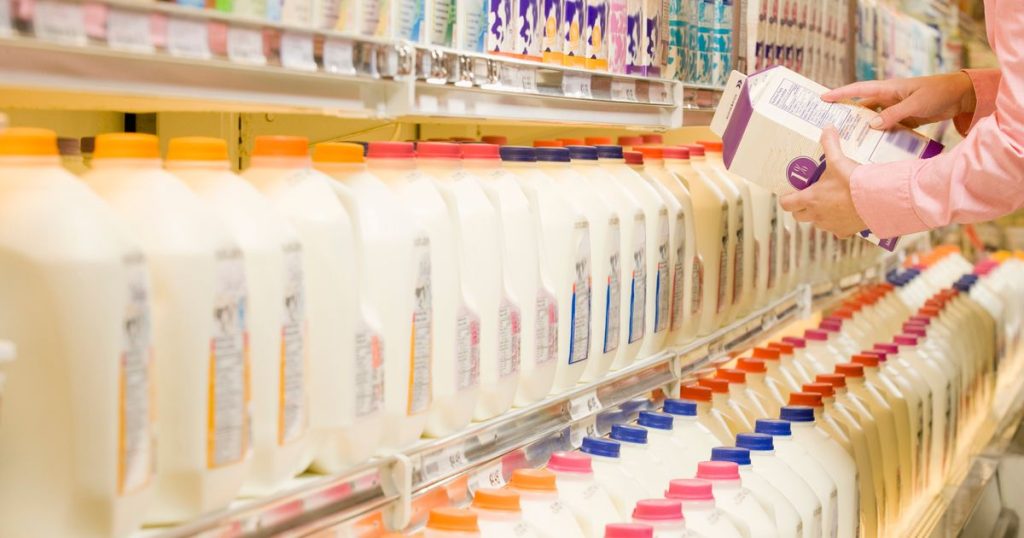A new report from the Food and Drug Administration (FDA) found traces of highly pathogenic avian influenza (HPAI) in commercially sold pasteurized milk. Research showed that one in five samples of commercially sold pasteurized milk contained viral fragments of H5N1, also known as bird flu. The fragments in the milk were not live or infectious, but the presence of the virus raises concerns. The report revealed that many milk samples with bird flu traces were from areas where cows were infected by the virus. However, the FDA stated that commercial milk is still safe due to the pasteurization process, which kills bacteria, and the destruction of milk from infected cows, ensuring consumer safety.
The H5N1 bird flu virus is not new and primarily infects birds, poultry, and animal species. Since 2002, more than 58 million domestic birds in the United States have died from H5N1. Researchers have also found instances of H5N1 infection in other mammals. In October 2022, a mink fur farm in Spain had an outbreak of the virus, signaling potential mammal-to-mammal transmission and the risk to humans. Between 2003 and 2016, over 800 people were infected with H5N1, with a mortality rate exceeding 50%. Experts express concerns about the possibility of an H5N1 pandemic among humans and highlight the need for prompt and transparent communication from authorities regarding the outbreak and food safety measures.
The lack of clear and timely updates on the spread of H5N1 in cows and the safety of milk supplies is concerning to health officials, reminiscent of communication challenges during the COVID-19 pandemic. Epidemiologists stress the importance of coordination and communication among multiple agencies to address the avian flu outbreak effectively. The U.S. Department of Agriculture, Centers for Disease Control and Prevention, FDA, and state partners are currently investigating the spread of the avian virus among dairy cows in various states. There is a call for improved coordination and communication to ensure the safety of milk supplies and protect consumers from potential risks associated with H5N1 contamination.
The FDA plans to continue testing milk supplies to further assess potential risks for consumers. While the agency maintains that the commercial milk supply is safe, multiple studies are underway to provide a comprehensive understanding of the situation. The results of these studies will be released in the coming days and weeks to inform the public and address any concerns regarding the presence of bird flu fragments in commercially sold pasteurized milk. Continued monitoring and communication efforts by regulatory agencies will be critical in managing the avian flu outbreak and safeguarding public health.














